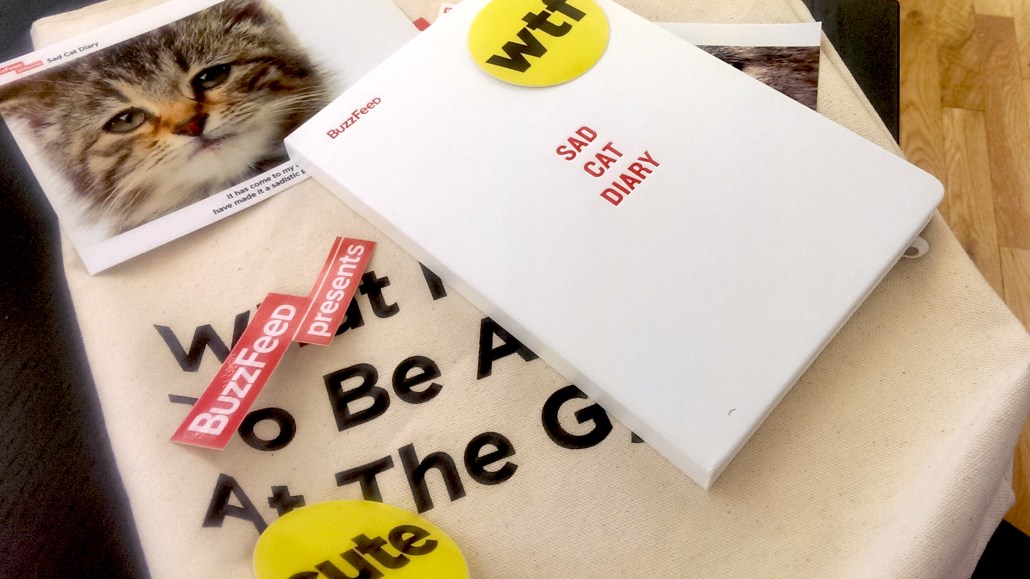Last chance to save on Digiday Publishing Summit passes is February 9

If you give a man a fish, he’ll eat for a day. Teach him how to make listicles, on the other hand, and both of you will eat for while. That’s what BuzzFeed is betting, anyway.
Today’s digital ad climate has forced publishers to act more like agencies. The New York Times, The Wall Street Journal and other publishers are all using their content-crafting expertise to churn out content for brands. They are in many ways following in the footsteps of BuzzFeed, which has long created viral content for its advertisers.
Now, as many publishers are rushing into agency services, BuzzFeed is taking the model in a new direction. While the site employs 60 people as a part of the BuzzFeed Creative Team, it has also expanded the business beyond branded content creation to branded content education. Through BuzzFeed University, which it launched last summer, BuzzFeed teaches brands and agencies how to create their own BuzzFeed-style content.
Big brands like OMD, AKQA and Zeus Jones have signed up for the curriculum, which includes custom workshops, live-streamed seminars, and live interactive events. Last month, BuzzFeed even announced a partnership with Digitas, which is working directly with members of BuzzFeed Creative Team to craft social content strategies and bring the agency in line with the site’s take on the Web.
“Working directly with creative agencies to educate them on our point of view and our platform makes our offering even stronger,” said Matt Trotta, BuzzFeed’s vp of agency strategy.
For BuzzFeed, the education expansion is all about scale. By teaching brands the site can increase the amount of branded content that lands on its pages without hiring more content creators to do it directly. Because BuzzFeed charges clients for the media buy and not the creative, getting more agencies in line actually means more revenue, not less.
“I’m guessing that BuzzFeed is looking to make this into a win-win,” said Dorian Benkoil, svp media consultancy Teeming Media. “BuzzFeed can teach agencies not only to capture revenue, but also do it in a way that solidifies the relationship with those agencies. When it’s time to place what’s been created, guess where it will be placed?”
The big question, however, is whether BuzzFeed is sharing too much of its secret sauce by working directly with agencies. BuzzFeed, for its part, doesn’t seem to be too concerned.
“We’re generally a transparent company and believe that by disseminating our knowledge of the social Web to our best partners, we create better partnerships and better content for our readers,” Trotta said.
More in Media

In Graphic Detail: The scale of the challenge facing publishers, politicians eager to damage Google’s adland dominance
Last year was a blowout ad revenue year for Google, despite challenges from several quarters.

Why Walmart is basically a tech company now
The retail giant joined the Nasdaq exchange, also home to technology companies like Amazon, in December.

The Athletic invests in live blogs, video to insulate sports coverage from AI scraping
As the Super Bowl and Winter Olympics collide, The Athletic is leaning into live blogs and video to keeps fans locked in, and AI bots at bay.





